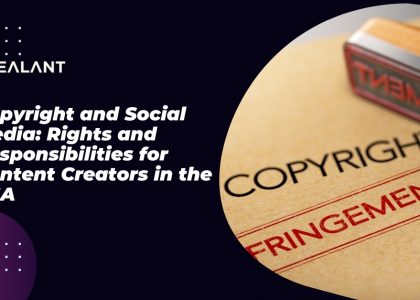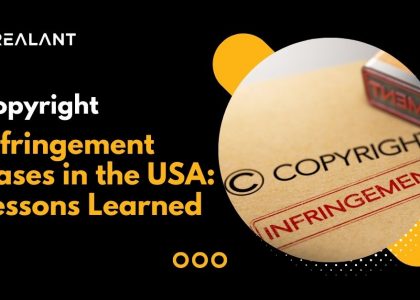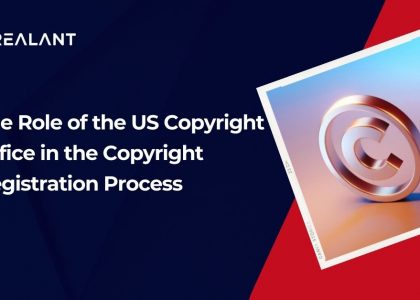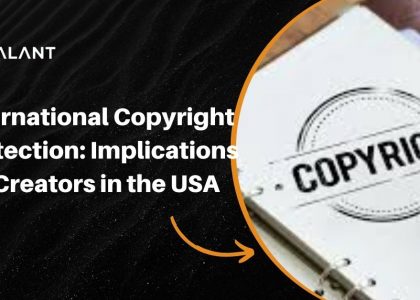Copyright and trademark law are two very different types of laws. Copyright protects the creative work of an artist, while trademark laws protect the name or logo of a business. Both law systems have their specific regulations and procedures.
Trademarks and copyright are two types of intellectual property that protect ideas, names, symbols, and designs. They differ in terms of who owns the rights to use them. Trademark protection is granted to an individual, company, or product. Copyright protection is granted to an author or artist.
There are a few things to keep in mind when you are trying to understand the difference between copyright and trademark. Read it till the end to learn more.
What’s the difference between copyright and trademark? And what does this have to do with your business in the USA?
Copyright and trademark are legal terms that protect the intellectual property of an individual or company. Copyright protects original works, such as articles, books, music, software, and movies. A trademark protects the use of a company’s name, logo, or other distinctive marks in exchange for exclusivity. While they can both help protect your business, there is a crucial difference you need to understand if you want to take advantage of their protections.
- Copyright protects creative works such as books, movies, music, etc. while trademark protects the name or symbol of a product or company. For example, Apple’s logo is a trademark, while the Coca-Cola logo is a copyrighted work.
- Trademark and copyright laws differ in how long they last. Copyright lasts for 50 years after an author’s death (or 95 years for works that were first published before 1978). Trademark protection lasts for 10 years (plus an additional 20 years if it was registered before 1995).
- Copyright law also gives people the right to sue for infringing their copyright. This means that you can file a lawsuit if someone uses your copyrighted material without permission. You may also be able to get monetary damages from the person who wrongfully used your work.
- Trademark law does not give anyone this right. Trademarks can only be legally protected if they are used in commerce (i.e., they are used on goods that are sold). If someone infringes on your trademark but doesn’t sell anything, you won’t have any legal recourse.
Are trademarks and copyrights the same thing in the USA?
A trademark can be used to distinguish your product from others in the market. For instance, McDonald’s has trademarked its Golden Arches logo. Copyrights protect works of authorship, such as poems, books, songs, artwork, etc. They give the creator of the work exclusive rights to reproduce, distribute, display, or adapt the work. For example, if you write a book and want to sell it, you need to get copyright permission from the author before publishing.
There is a lot of confusion between trademarks and copyright because they share some similarities. However, there are also important distinctions that should be understood if you plan to protect your intellectual property. Here are a few key points to keep in mind:
- A trademark is an identifier that represents your company or product in the marketplace. Unlike copyright which covers original expressions of creative works, trademarks cover commercial uses of ideas (e.g., McDonald’s Golden Arches logo).
- A trademark can only be used on goods and cannot be used on services (e.g., Burger King does not have a trademark for their service delivery).
- To register a trademark, you must provide evidence that your mark has been used in commerce and show that it is distinctive.
- You may ONLY use trademarks that are registered with the USPTO. You cannot use unregistered trademarks (i.e., those that have not been filed with the USPTO).
- If someone files for infringement of your registered trademark, you will need to take action through legal channels (i.e., filing lawsuits).
- Protecting your trademarks is important because they can prevent others from using your Mark without consent and can generate revenue for your business.
- Be sure to keep updated on regulatory changes affecting trademarks so you can be proactive in defending your marks.
Conclusion
There is a lot of confusion surrounding these two rights, which is why it’s important to understand the difference between them. If you protect your trademark or copyright improperly, you could risk losing the right to use it. So be sure to consult with an attorney if you have questions about protecting your intellectual property in the USA.
Understanding the difference between trademark and copyright is important if you plan to use either type of protection in the US. Failing to make this distinction could lead to costly mistakes down the road. To maximize the benefits of each rule, it’s essential to understand their differences. This knowledge can prevent costly mistakes down the road. Alleviate your knowledge and minimize the risk to your intellectual property with Brealant. The firm caters to its client with the best professionals who hold years of expertise in intellectual property aspects.





